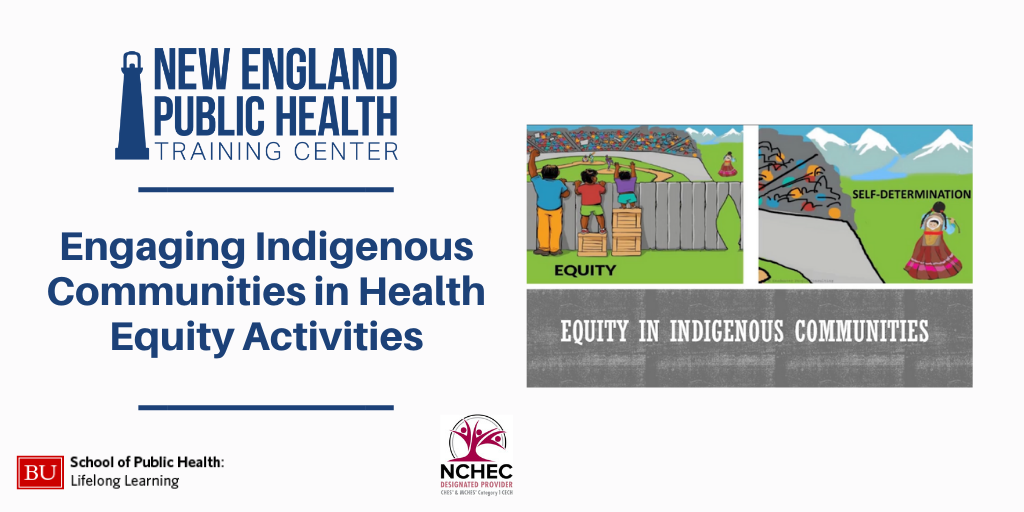Engaging Indigenous Communities in Health Equity Activities
About this Webinar
Indigenous communities, people who identify as American Indian and Alaska Native, have long faced systemic oppression in this country which is reflected in poor health outcomes. For example, indigenous communities have a life expectancy that is 5.5 years shorter than the national average. Learn about how Connecticut has treated indigenous communities in the past, how these injustices impact policy today and how you can engage this population in health planning. While the focus is on Connecticut, this presentation has information useful for practice in any state.
What you’ll learn
After completing this recording, you will be able to
- Name the indigenous communities in Connecticut
- Describe how indigenous communities have been overlooked in health equity outcomes
- Recall examples of state policies that resulted in unjust treatment of native peoples
- Discuss strategies for outreach and inclusion for this population
Subject Matter Expert
Michele Scott
Michele Scott is the Executive Director of The Health Education Center located in Norwich, CT where she works diligently to ensure that the healthcare workforce pipeline reflects the communities it serves. She brings with her a background in community health, strategic planning, program evaluation and a commitment to equity within health systems. Michele serves as Chair of the Health Care Advisory Board of the Mashantucket Pequot Tribal Nation and is a member of The Arc Eastern Connecticut Board of Directors. Michele received her B.A in Psychology and American Studies from Columbia University and her M.S. in Organizational Leadership from Quinnipiac University. She resides on the Mashantucket Pequot Reservation with her family.

